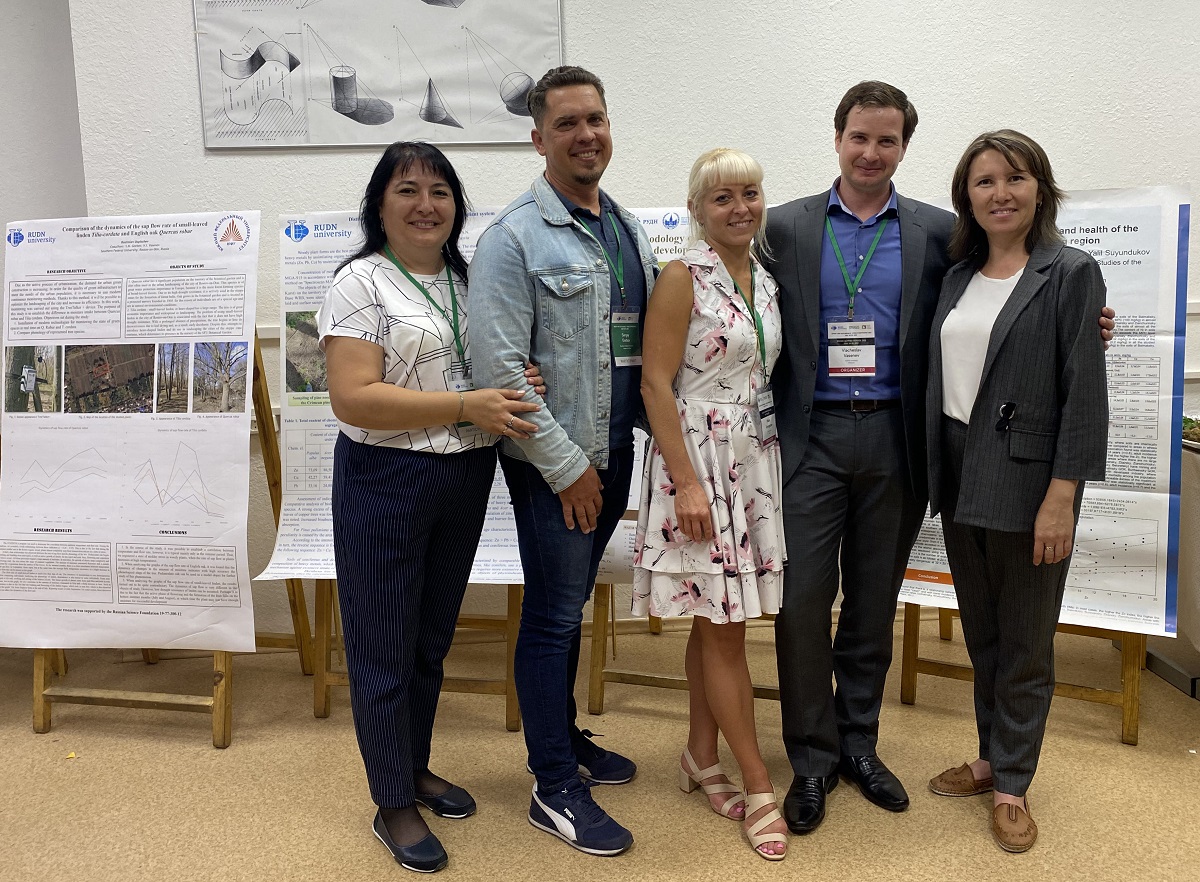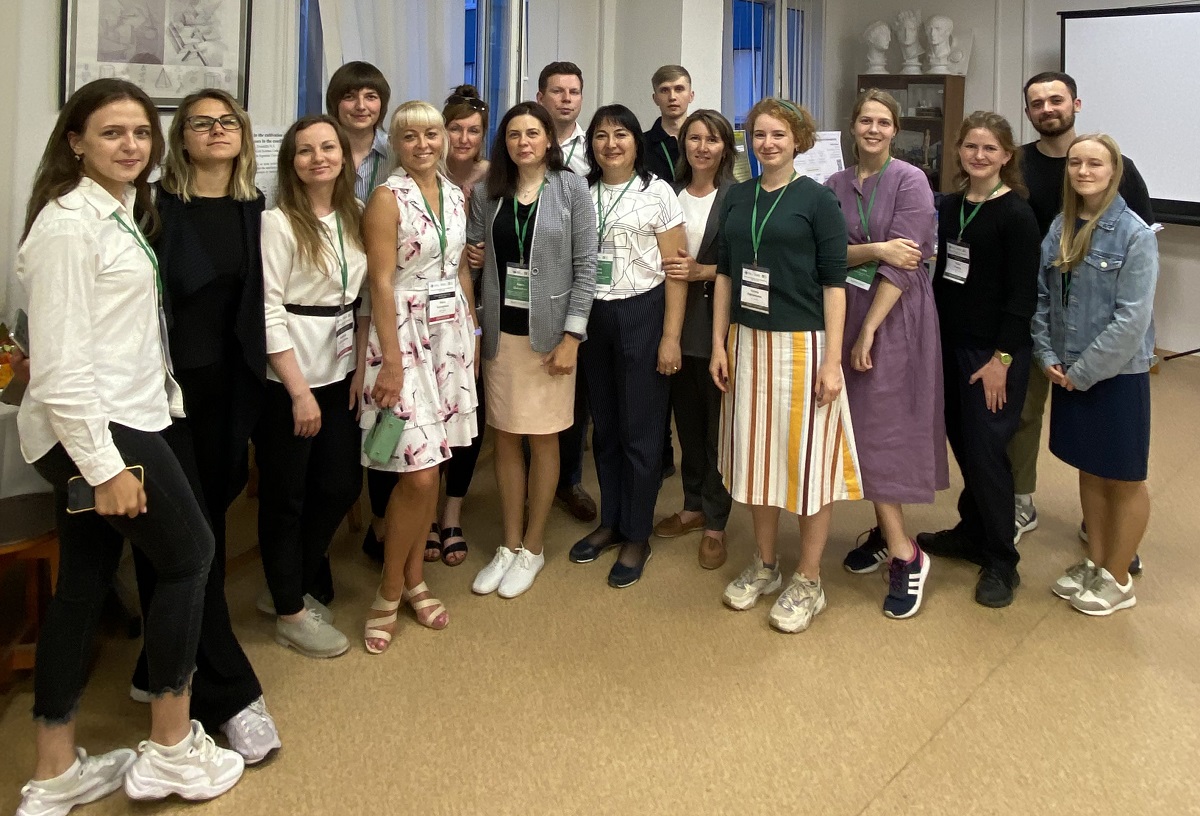“Sustainable city implies green city”: scientists discussed new challenges and prospects in the sustainable development of megacities at the Smart and Sustainable Cities 2022 conference
Special attention was paid to attracting young scientists when organizing the SSC-2022 conference. The event was held in parallel with the 3MUGIS summer school, which took place from July 18 to 22 and gathered dozens of participants with the involvement of leading Russian and foreign experts in the field of ecology, soil science, landscape design and sustainable development.
At the opening ceremony of the conference, Elvira Dovletyarova, Director of the Agrarian and Technological Institute of RUDN, made a welcoming speech: “A sustainable city is a green city that seeks to improve its environmental performance, compensating for the negative effects of urbanization. Therefore, it is especially valuable that the Smart and Sustainable Cities conference, which has already become an authoritative one, not only expands the circle of experts every year, offering new ideas and technological solutions to develop a comfortable and sustainable environment, but also creates an innovative platform for effective cooperation of scientists with city managers and urban planners”.
The comprehensive nature of the sustainable development of megacities was reflected in the interdisciplinarity of the scientific program, which included 5 sections and 2 round tables on a wide range of areas, including soil and environmental, economic aspects, health issues, new technologies of green chemistry and eco-monitoring, landscape architecture and urban climate.
The first day of the conference opened with a keynote from Maria Ignatieva (The University of Western Australia, Australia) and Diana Dushkova (Helmholtz-Center for Environmental Research, Germany), who shared the latest data in the field of human-nature relations in the post-covid time.
Riccardo Valentini (RUDN, Russia/UNITUS, Italy), Alexander Chernokulsky (Obukhov Institute of Atmospheric Physics of the Russian Academy of Sciences), Olga Gavrichkova (CNR, Italy), Yakov Kuzyakov (GOU, Germany), Peter Groffman (CUNY, USA) and others also delivered lectures as leading speakers.
Over the course of the three-day conference program, more than fifty scientists delivered 33 reports, and 30 poster works were presented as part of the poster session. On the final day of the conference, Jean-Louis Morel, a permanent expert of the 3MUGIS summer school and the SSC conference, spoke about the features of ecosystem services of anthropogenic soils.
In general, the conference widely considered advanced approaches and innovative technologies for monitoring, modeling and assessing environmental changes and risks in the life of megacities. The key attention of SSC-2022 was focused on an interdisciplinary search for solutions to the ecosystem problems of modern cities. The experts presented the most relevant data on their topics, and shared their successful experience in creating sustainable urban development projects, including the management and design of green infrastructure, waste management, sewage treatment and urban soil restoration.
This year, the Smart and Sustainable Cities conference has developed and strengthened its status as a major interdisciplinary scientific and practical event that develops both a fundamental and an applied approach to advanced technological solutions for monitoring, evaluation and management of ecosystem services as well as sustainable urban development in general.
The RUDN Prize for Scientific Achievements in Chemistry for 2025, with a monetary award of 2 million rubles, was awarded to Alexander Davidovich Dilman, Deputy Director of the N.D. Zelinsky Institute of Organic Chemistry of the Russian Academy of Sciences. The researcher received the award during the celebration marking RUDN’s 66th anniversary.
Sergey Ivanov, a scholar from St. Petersburg, has been named the first winner of RUDN University’s International Prize for Scientific Achievements in Mathematics, worth 5 million rubles.
Products derived from microalgae represent a cutting-edge development in the field of bioeconomy. The potential of this biological resource was discussed at the international research seminar “Foundations for a Green Sustainable Energy”, part of the BRICS Network University’s thematic group on “Energy”. The event was organized by the Institute of Ecology at RUDN University.

